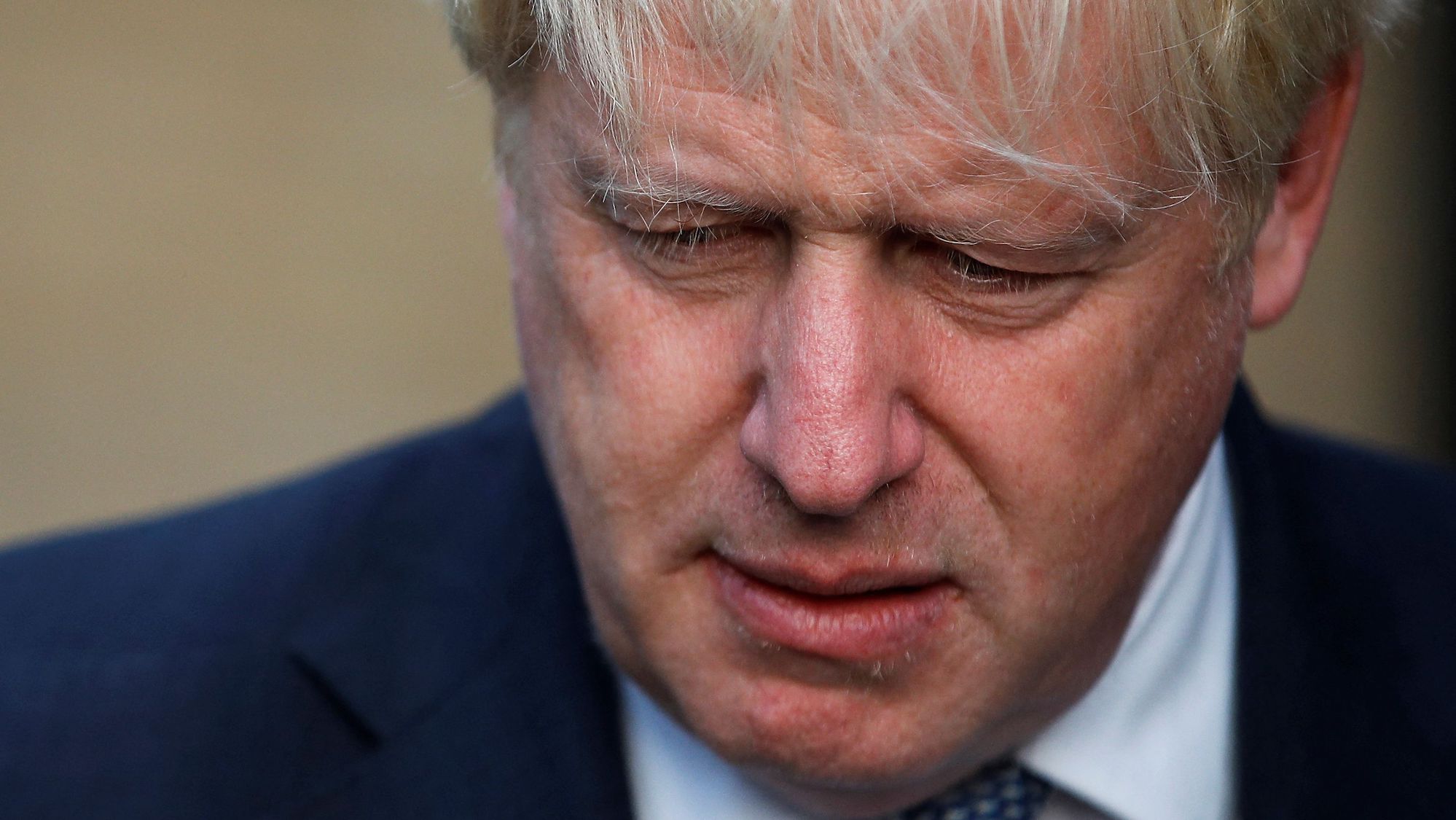Boris Johnson: the admissions and apologies on first day of his Covid inquiry testimony
The former prime minister's appearance at the public inquiry was marked by protesters and interruptions

A free daily email with the biggest news stories of the day – and the best features from TheWeek.com
You are now subscribed
Your newsletter sign-up was successful
Boris Johnson has admitted that he should have "twigged much sooner" about the severity of the coronavirus pandemic as he began giving evidence to the Covid inquiry in London.
The former prime minister's appearance at the public inquiry had been the "most eagerly awaited moment so far", said The Guardian, with his evidence having implications for his own legacy as well as for the current PM Rishi Sunak.
Johnson opened with an apology, saying he was sorry for the "pain, loss and suffering" that occurred as he led Britain through the pandemic.
The Week
Escape your echo chamber. Get the facts behind the news, plus analysis from multiple perspectives.

Sign up for The Week's Free Newsletters
From our morning news briefing to a weekly Good News Newsletter, get the best of The Week delivered directly to your inbox.
From our morning news briefing to a weekly Good News Newsletter, get the best of The Week delivered directly to your inbox.
But he was "quickly interrupted by the inquiry's chair", Lady Hallett, who ordered protesters in the gallery to sit down, said Politico. The protesters were being "quiet, but holding signs aimed at Johnson" and were removed after refusing to sit. As he tried to continue, somebody shouted "You're not sorry."
Johnson said the government had done "our level best" and admitted things could have been done "differently". He later said he "took responsibility for all decisions made" during the pandemic, The Guardian reported, and admitted that "mixed messages" were given to the public by the various devolved governments.
"Too many meetings were too male-dominated," he accepted, answering questions on previous claims from witnesses that there was an "institutional bias against women" in decision-making.
That led to questions about a "toxic culture" in 10 Downing Street that has "already been laid bare" in the inquiry, added The Guardian. Johnson did not fully concede that such a culture existed but said he would "make a distinction between the language used and the decision-making". The Blair and Thatcher governments also had "challenging and competing characters whose views about each other might not be fit to print", he said, but he argued that they got "an awful lot done".
A free daily email with the biggest news stories of the day – and the best features from TheWeek.com
Johnson also said that the former health secretary Matt Hancock may have had his "defects" but he was "doing his best in very difficult circumstances".
Richard Windsor is a freelance writer for The Week Digital. He began his journalism career writing about politics and sport while studying at the University of Southampton. He then worked across various football publications before specialising in cycling for almost nine years, covering major races including the Tour de France and interviewing some of the sport’s top riders. He led Cycling Weekly’s digital platforms as editor for seven of those years, helping to transform the publication into the UK’s largest cycling website. He now works as a freelance writer, editor and consultant.